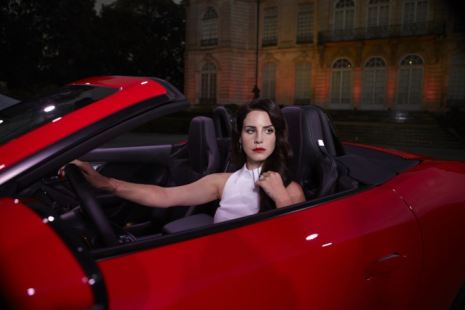
And the Philosophy Student said unto God, “God, if thou art so great, canst thou create a boulder even thou cannot lift?”
And God said unto the Philosophy Student, “Don’t be a smartass.”

And the Philosophy Student said unto God, “God, if thou art so great, canst thou create a boulder even thou cannot lift?”
And God said unto the Philosophy Student, “Don’t be a smartass.”
You’ve probably heard of the phrase “your luck has run out.” Sounds like something a Saturday morning cartoon hero might say to her greatest nemesis just before securing victory.
But sometimes I wonder if there’s really something to that phrase. Could luck be a finite resource, like coal or petroleum or Magic: The Gathering trading cards?
I don’t have any real evidence for this claim other than those days when you’re lucky enough to wake up on time despite your alarm malfunctioning, yet unlucky enough to hit a huge traffic jam and end up late for work anyway. In those moments, it feels like you were only given one token of luck, and you spent it on the alarm clock.
All this is why I fear the claw machine at arcades.
Let me explain. I have tremendous luck with the claw machine at arcades. The one where you press a red button on the end of a joystick to make a four-pronged silver claw descend into a sea of plush toys. It’s that machine that you quietly curse when it drops the toy you so carefully plucked, almost as if it was on purpose.
I’ve won the claw game three times in my life, which I consider the equivalent of hurling a basketball from the opposite side of the court with my eyes closed while balanced on a unicycle and draining it. And I don’t consider this bragging because, like hurling a basketball with eyes closed while balanced on a unicycle and draining it, the claw machine has nothing to do with skill. It’s just sheer dumb luck.
(By the way, what is dumb luck? If there’s such a thing as dumb luck, does that mean there’s also such a thing as smart luck, or straight-Bs-but-tries-really-hard luck?)
Anyway, I wonder if I’m wasting all my luck, dumb or otherwise, on the claw machine. What if I never played the claw machine, never won that dalmatian with the fireman helmet or the mini Chicago Bulls basketball or the orca whale, and instead put that luck toward something that’s actually useful, like a lottery ticket?
And that’s maybe the worst part of luck. You can’t know when you’re using it, or how much you’re using, or whether or not it’s about to run out.
Back to that “your luck has run out” phrase. It’s usually followed by some misfortune directed at one person or another, like death or something. Which is funny, because I don’t think dying is unlucky. You wouldn’t have to be lucky to win the lottery if everybody won the lottery, right?
Then again, could luck just be an explanation for the unexplainable? I mean, if you’re unfortunate enough to find yourself in class on the day you didn’t do the reading, and then, out of the entire lecture hall of a hundred or so students, your professor chooses you to answer her question, how would you explain that.
Just bad luck, I guess.
Likewise, if you win the lottery, beating out all the thousands of other entrants whose numbers might be a digit or two away from yours, how can you explain that?
Must be good luck (or smart luck?).
So do I really even believe in this thing called luck? I guess not. It probably isn’t this intangible that we all use every day, and that can run out at any moment. It’s more likely that it’s just the word we use to describe the unlikely, or the nearly impossible. Really, luck is probably nothing more than a word, right?
Still, just to be safe, maybe I’ll stay away from the claw machines.
Do you ever miss the feel of the page? The artwork on the cover? The smell of the paper, the texture of the spine, even the satisfying whisper of the page as it’s turned? The written word thrives as it ever has—but seldom on the printed page.
I have an e-reader, and I like it well enough. I like taking it on planes and having access to as many books as I want, and I like how much space I save by bringing it along. What I miss are the things I’ve described above: the pages, the spine, the front and back covers, the weight of a heavy volume in my hand. Media changes with technology, advancements are made—but books should never die.
There are many valid arguments for having an e-reader. I’ve mentioned some above, but there are certainly more. I myself like that I can get public domain books for free on my Kindle, whereas I’d have to pay around ten dollars for a physical copy. The variable font sizes are also valuable for anyone who has trouble reading small print. Many have backlit screens, eliminating the need for external light sources. Lastly, electronic books are, on the whole, cheaper than real ones.
But there is a social aspect to reading that some might overlook, an aspect which is completely ruined by the advent of the e-reader. Imagine reading in a public space. A stranger notices the title or author of the book you’re reading on the cover. This stranger might ask you how the book is, and you might say something like, “It’s good so far, but I really don’t know what’s happening yet.” Or, you might hate it, or love it, or feel ambivalent toward it. Whatever the case may be, you and this friendly stranger have started a conversation because of the book in your hand.
Now imagine the same scenario, only with an e-reader. The friendly stranger will notice that you have a Kindle in hand, but will not be able to read the title of whatever it is you’re reading. He or she will therefore probably not ask for the title on the off chance that he or she has read the same thing. Some may say that this is not reason enough to spend more money on books, and perhaps it isn’t. My intent here isn’t to get readers to buy books. It’s to remind everyone of what we’re missing.
And what about book sharing? So far as I know, buying an electronic copy of a book only allows users to read it on their own device, unless multiple devices are connected to the same account. With a real book, however, one can purchase a copy and then share it with anyone. My mom loves to do this, and it’s one of the other social aspects of reading real books. Afterward, you can discuss the book with whomever gave it to you, perhaps exchanging ideas you hadn’t thought of before and thereby expanding your knowledge. This is not really a possible scenario with an e-reader, unless you don’t mind loaning your Nook out all the time.
Furthermore, don’t we rely on electronics enough already? I personally use multiple devices each and every day—my computer, my phone, my iPod. I love my electronics and I’m glad I have them—but once in a while, it’s nice to give all my focus to something that doesn’t have a digital screen.
The book is timeless. From the day the first Gutenberg Bible was manufactured on the printing press, books are how people have been sharing ideas. Now, however, they’re on the brink of extinction.
Perhaps it’s time we did something to save them.
Kyle A. Massa is a speculative fiction author living somewhere in upstate New York with his wife and their two cats. His stories have appeared in numerous online magazines, including Allegory, Chantwood, and Dark Fire Fiction. His debut novel, Gerald Barkley Rocks, is available now on Amazon Kindle.

I usually don’t do a lot of music reviews on my blog. However, I wanted to talk about the new album Ultraviolence for two reasons. One, Lana Del Rey is possibly the only modern artist I’ll listen to, and two, because I’ve never had this sort of reaction to an album before.
Musically, I think it’s marvelous. The melodies are haunting and instantly memorable, and the instrumentation is solid. You have to hand it to Del Rey; she’s produced an album without a radio-friendly single and without the electronic beats most popular artists use today. I think she’s a truly unique artist–no small feat when you look at all the clone pop stars around now.
Dan Auerbach of the Black Keys provides veteran support on guitar and production. His low-key, sombre chords fit the music quite well, particularly on “Brooklyn Baby” and “Ultraviolence.” Del Rey’s lyrics layer flawlessly over top, painting black and white noir scenes in the mind of the listener, scenes filled with empty west coast homes and alluring femme-fatales.
So much to love, and yet…
While most of the lyrics are wonderfully moody and atmospheric, some are downright troubling. Take for instance, the following lines from the title track:
I can hear sirens, sirens
He hit me and it felt like a kiss
I can hear violins, violins
Give me all of that Ultraviolence
Some will argue that Del Rey sings as a character, and that these lyrics are merely lines in the David Lynchian domestic hyper-drama her character stars in. I’ll admit, that’s not a bad argument; no one would fault a filmmaker for portraying violence onscreen, as long as that violence is necessary to the story, and (in most cases) as long as it isn’t glorified. But what troubles me about these particular lyrics is that Del Rey’s character seems to be welcoming the abuse as affection.
Furthermore, “Ultraviolence” clearly references the controversial 1962 pop song “He Hit Me (And it Felt Like a Kiss).” Originally recorded by The Crystals and produced by Phil Spector, the song received limited airplay for obvious reasons. Here is one of the more shocking verses:
He hit me and it felt like a kiss
He hit me and I knew he loved me
If he didn’t care for me,
I could have never made him mad
But he hit me and I was glad
Wow.
When it comes to art, I don’t get irked by a lot. I almost always support an artist’s right to create and exhibit his or her work, no matter how sensational or controversial it might be.
But this song is just hard to listen to. Its lyrics are made even worse by the bright triangle chimes in the background and the vocal harmonies that seem to cheerily echo the song’s twisted message.
Of course, “He Hit Me” was written long before Lana Del Rey was even born. But she’s referencing it without really condemning the message. On the contrary, she seems to be promoting it.
It’s 2014. Haven’t we come farther than that yet?
Some may argue that these lyrics will set a bad example for young listeners; that young girls might think their boyfriends don’t love them unless they hit them, and that young boys might strike their girlfriends in an effort to show affection. I personally don’t buy this argument. Kids are smart. For the most part, they already know what’s right and wrong. In most instances, music, video games, TV, or anything else really aren’t going to change their behavior too drastically.
Ultimately, it’s up to the listener to decide what she or he thinks. What I will say is this: I really like Ultraviolence. I think it’s an excellent album. But I’ll probably never listen to it without a certain hesitancy.
And I’ll definitely never be comfortable with singing along with the lyrics.
© 2025 Kyle A. Massa
Theme by Anders Noren — Up ↑